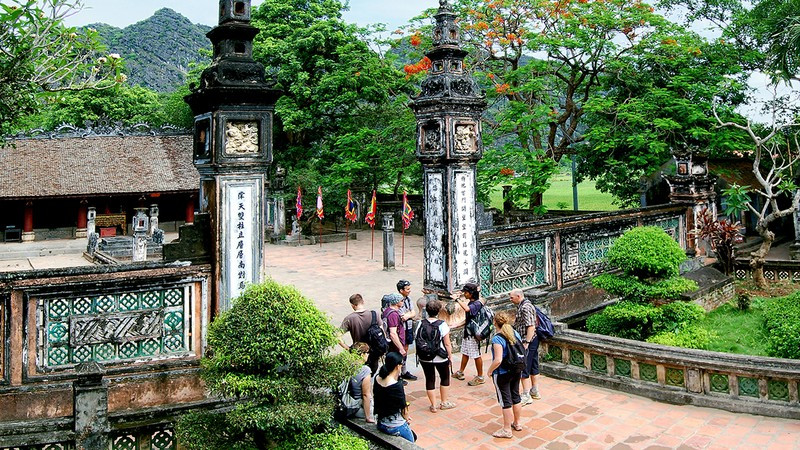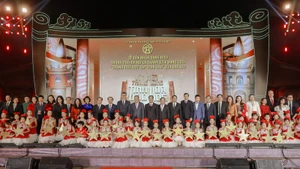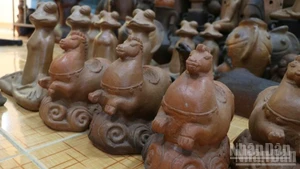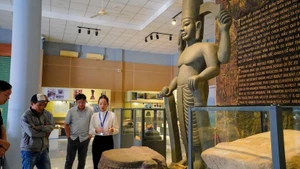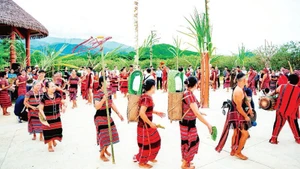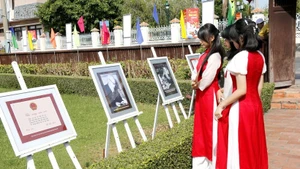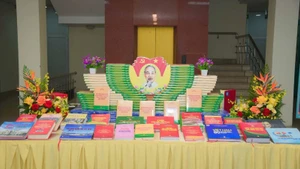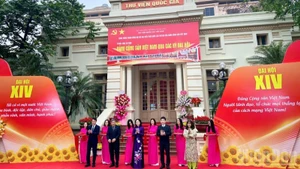The world heritage title has positively impacted the development of Ninh Binh Province in a sustainable direction by moving from brown to green growth with a focus on tourism and services as well as heritage protection.
The Trang An Landscape Complex welcomed more than 4.6 million visitors in 2023, up from the figure of around 2.2 million visitors in 2014, generating revenue of 4.5 trillion VND.
In the first quarter of this year, Ninh Binh Province received 3.9 million visitors, including 339,000 foreigners, and earned revenue of 3.66 trillion VND, up 46% over the same period last year.
The local community not only lives in the heritage but also participates in protecting the heritage and are benefited directly from the heritage.
Accordingly, more than 10,000 direct workers have been employed in Trang An Complex, and the number of indirect workers exceeds 20,000.
Tourist activities have significantly improved the income of the local community, creating sustainable livelihoods for people in the heritage area.
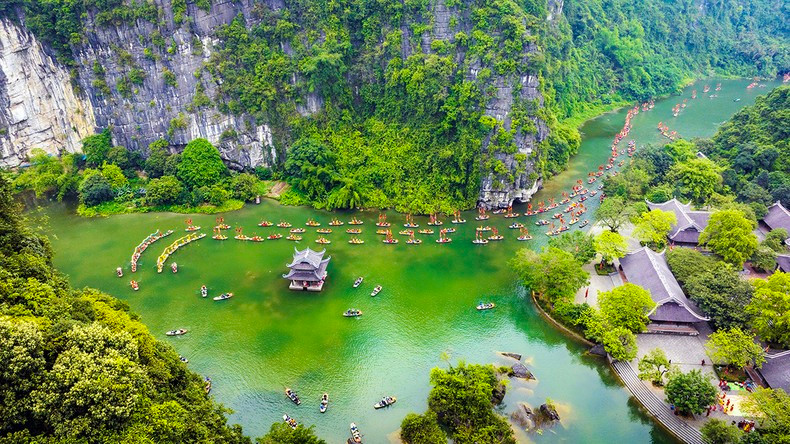 |
The world heritage title plays a crucial role in attracting tourists. However, it is important to ensure harmony between preserving and promoting heritage values to develop tourism while maintaining the authenticity and integrity of world heritage. This requires the joint participation and consensus from all parties, including the State, the private sector, and local communities.
Ninh Binh has opted to preserve intact and sustainable heritage values and utilise those values in the local socio-economic development, creating sustainable livelihoods for people.
Determining culture as the most important resource and tourism as its outstanding strength, the Ninh Binh provincial authorities have also made bold investment in preserving and promoting the value of Trang An Landscape Complex.
Trang An is a successful example of the balance between development and heritage preservation.
UNESCO Director General Audrey Azoulay
During her official visit to the Trang An heritage site in September 2022, UNESCO Director General Audrey Azoulay hailed Trang An as a successful example of the balance between development and heritage preservation.
She also appreciated the heritage management model applied by Ninh Binh Province, which engages the full participation of the State, scientists, enterprises, and the local people, thus maximising the heritage’s values while proactively preventing and promptly handling activities that infringe on heritage.
According to Chief Representative of UNESCO in Vietnam Jonathan Baker, UNESCO highly values the cooperation between public and private partners in Ninh Binh, which not only creates a favourable environment for start-up companies and small-and-medium-sized enterprises but also provides opportunities for local communities to develop unique tourism products.
Trang An Heritage has established as a symbol in spreading cultural values and protecting landscapes and environments worldwide, helping to promote understanding between Vietnam and countries around the world, he stressed.
Director of Ninh Binh Provincial Department of Tourism Bui Van Manh affirmed that since Trang An was honoured as a world heritage site, the local authorities and hospitality sectors have fully observed UNESCO's recommendations on strengthening the management of the heritage, enhancing human resources training, developing and promulgating regulations on heritage protection, and allocating financial resources to implement projects on safeguarding and repairing the heritage.
Ninh Binh targets to become a centrally run city and a millennium urban heritage site by 2035, with Trang An heritage being placed as the centre in realising the plan.
With the achieved outcomes, along with strategic orientation, plans and specific roadmaps in preserving and promoting the values of the world-recognised heritage, it is believed that Ninh Binh Province will soon realise this goal.
The Trang An Landscape Complex was recognised as a World Cultural and Natural Heritage Site in 2014.
The site spans 12,252 ha across 20 communes and wards in five districts and cities of Ninh Binh Province. It is divided into five areas, including the ancient capital of Hoa Lu, a core area, a cave area, tourism service areas, and the spiritual tourism area of Bai Dinh Pagoda.
The complex boasts 47 historical relics nestled within stunning limestone karst mountain ranges. Visitors to the site can only enjoy a spectacular landscape of limestone karst peaks permeated with valleys but also explore caves at different altitudes, which have revealed archaeological traces of human activities over a more than 30,000 years.
